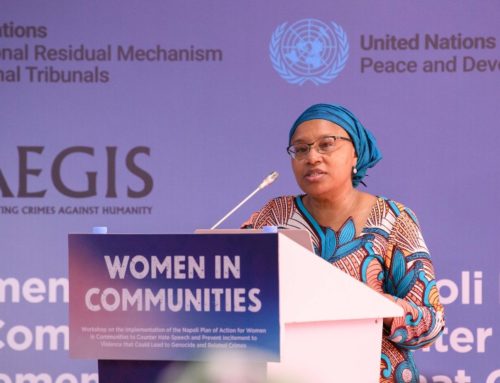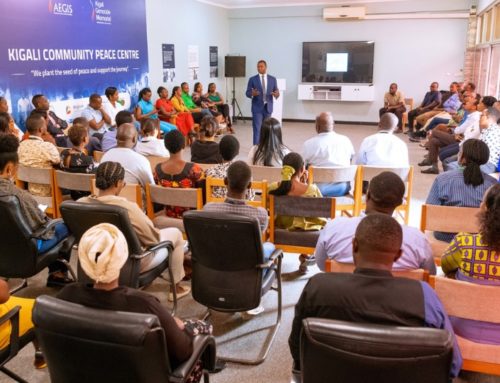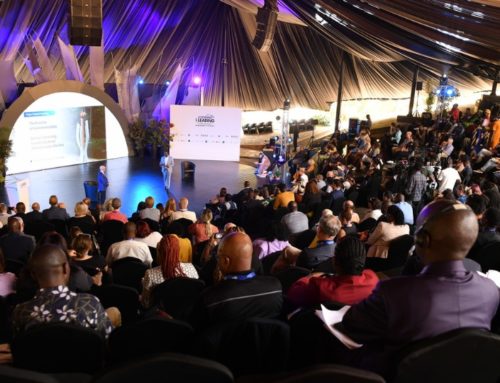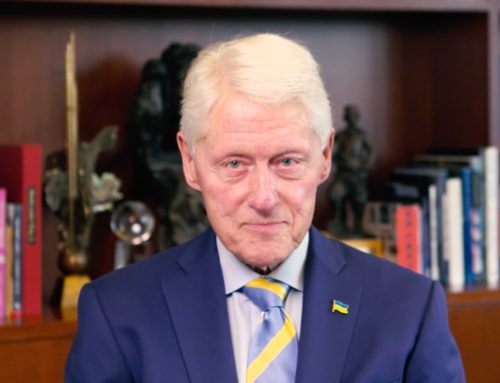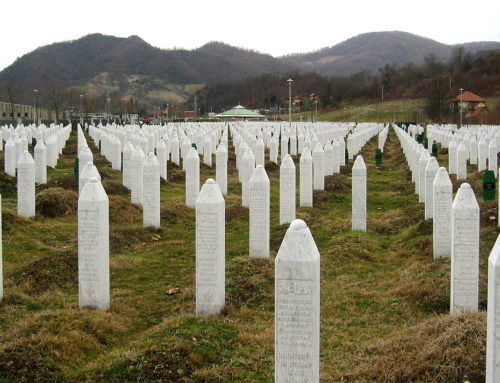 16 Jan 2012 – Dr Mukesh Kapila, Special Advisor to the Aegis Trust and former UN Resident Coordinator in Sudan, was blocked from visiting refugee camps in eastern Chad last week and then expelled by the Chadian authorities before he could get the chance to meet even one of the nearly 300,000 Darfuri refugees still languishing in desert camps ten years after the start of the Darfur crisis.
16 Jan 2012 – Dr Mukesh Kapila, Special Advisor to the Aegis Trust and former UN Resident Coordinator in Sudan, was blocked from visiting refugee camps in eastern Chad last week and then expelled by the Chadian authorities before he could get the chance to meet even one of the nearly 300,000 Darfuri refugees still languishing in desert camps ten years after the start of the Darfur crisis.
As UN chief in Sudan, Mukesh Kapila propelled Darfur into the limelight in March 2004 when he went to the media in Nairobi to state that it was the world’s greatest humanitarian crisis; that it was a human rights catastrophe on a par with Rwanda’s 1994 genocide – the only difference being the numbers involved, not the means or aims – and that the Sudanese Government was responsible for ethnic cleansing on a vast scale.
“I arrived in Chad’s capital N’Djamena ready to visit the Darfuri refugee camps in the east. And then at the very last moment, my permission to travel was withdrawn,” says Dr Kapila. “This was initially blamed on glitches in the paperwork, but it was odd that I was the only person in The Aegis Trust’s team so affected. It soon became clear, after I was summoned for a personal interview with the Interior Minister, that the real causes involved a great deal of political concern and possibly some kind of pressure from the Sudanese Government. Subsequently I was summoned again and ordered to leave the country.”
Having learned that Dr Kapila would not make it to the refugee camps and was in fact being expelled, a widow in Gaga refugee camp – Noreshem Hasaballah Osher – made the 1,000-kilometre journey to the capital in the hopes of being able to speak with him for a few minutes before he had to board a plane out on Saturday night. She missed him by a few hours, but they were able to speak on the phone shortly before Kapila’s departure.
“If Dr Kapila had managed to come to us, he would have recognised the problems we are experiencing,” says Noreshem. “The Darfur problem is far from finished. If it was, then we wouldn’t be in the camps, or at least some of us would have returned to our homeland. But we haven’t seen the perpetrators brought to justice and we keep hearing from back home that the killing and the rape is still going on. We were living peacefully in our country, but then we were driven out for no reason and now we are left in a prison. If I want to get firewood, I’ll be raped. If I want to get grass to sell it, I’ll be kidnapped. If I want to say something, I’ll be beaten up. What is a prison, if not this? I want the world to stand up and find a solution to our crisis, because now I and all my people feel imprisoned.”
“Some ten years after the initial genocide, Darfur is almost a forgotten crisis; definitely it’s an inconvenient crisis. Attempts to silence me are a reflection of that,” says Mukesh Kapila. “Sudan continues to be headed by an indicted criminal – a fugitive from justice at the ICC. Not only him, but Ahmed Harun, the suspected operational architect of the genocide in Darfur, is still in a position of power in South Kordofan, where he’s doing exactly the same thing. If the world deals with Sudan as though we have moved on, it sends a signal to the regime that it’s OK to go around committing mass murder; that the world will look away and they can continue to do their dirty deeds.
“Meanwhile the Darfuris are the forgotten victims. In eastern Chad they are refugees, yes, but hostages too. They are hostages to the ongoing violence in Darfur, unable to return to their homes; they are hostages to the policies of the Chadian authorities, which limit their freedom of movement, access to essential services and ability to integrate into the country properly; and they are hostages to the daily threat of insecurity in their immediate environment.
“For someone like Noreshem to take the risk of coming a thousand kilometres to meet with a person who is on the point of expulsion from the country, that is remarkable courage. And we owe it to courageous people like her that we don’t let them down. Not again.”

